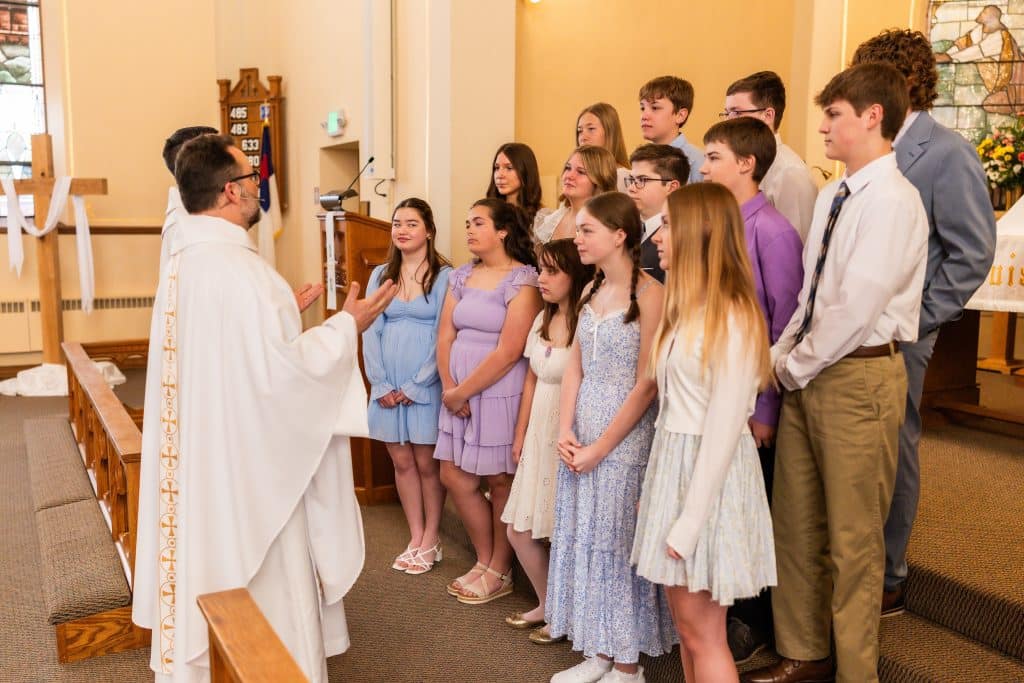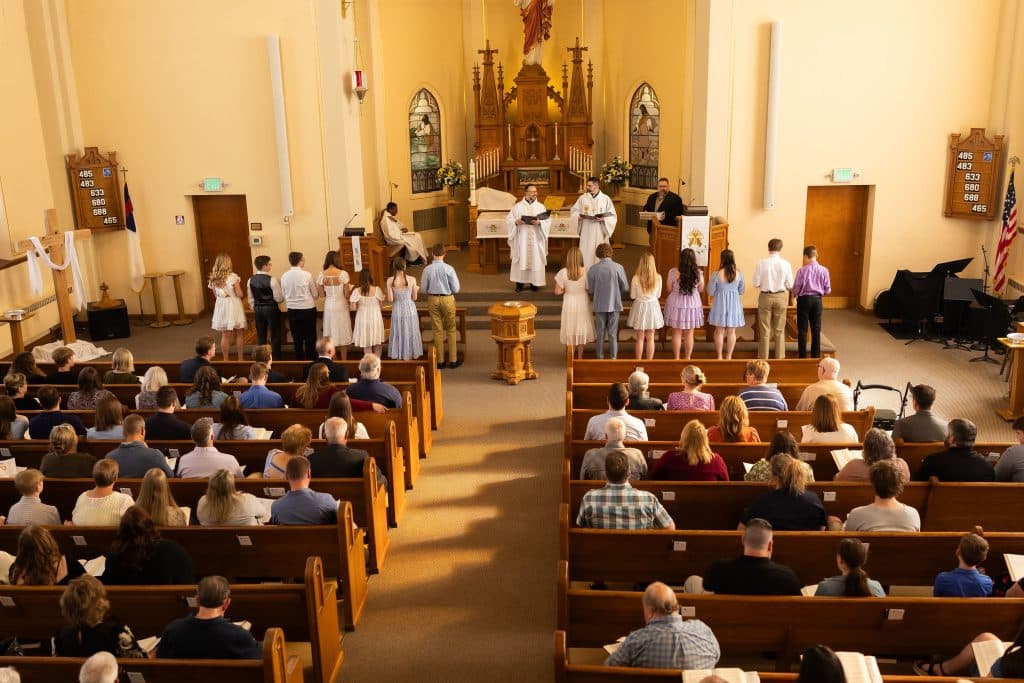Early Communion & Confirmation
Early Communion
Early Communion admits baptized children, who have not been confirmed, to the Lord’s Supper. Candidates have learned the Ten Commandments, the Creed, and the Lord’s Prayer. They have received careful instruction in the Gospel and Sacraments.
The Process
Adapted from Lutheran Service Book: Agenda
The “formal” process for early communion at St. Paul’s begins, typically, in 5th grade, though any child in grades 5-7 may participate in early communion once the requirements are met.
Requirements
- At least 75% weekend service attendance
- Turn in sermon notes to pastor
- Use Congregation at Prayer in the home
Memorize the Early Communion Learn-by-Heart Texts (pg. 5-8)
Once parents have helped the catechumen memorize the Foundational Knowledge components they should call the office to set up an appointment with Pastor O’Donnell in order to:
- Verify foundational knowledge component;
- Discuss in greater depth our understanding of The Lord’s Supper
- Schedule a date for First Communion
First communion will be scheduled once Foundational and Applied Knowledge components are met and verified by the Pastor. This can happen as soon as, or as late as, the parents and catechumen desire.
An appointment or phone call with the Pastor may be scheduled any time if either the parents or catechumen have questions.
- Catechumens (once they are trained) are encouraged to serve as acolytes for worship according to a regular schedule.
- The church secretary will publish a master schedule online. Each family will also receive contact information for other families. If you are unable to serve you are responsible for communicating with the office and finding a replacement.
Confirmation
Confirmation is a public rite of the church preceded by a period of instruction designed to help baptized Christians identify with the life and mission of the Christian community.
From Luther’s Small Catechism with Explanation, question #306
- Confirmation is a re-affirmation of one’s baptism. It is an opportunity to learn more deeply on what it means to be a baptized child of God.
- Confirmation provides further instruction in the sacramental life, increasing the catechumen’s understanding of Christ’s gifts.
The purpose of confirmation is to prepare the catechumen for a commitment to a life of Christian discipleship.
Our goal is to prepare young people to make confident, public confessions of their faith. We will do everything within our power – together – to help them understand the gift of Christ’s forgiveness and how that is expressed in worship and life. Our practice is pretty simple: teach kids the Catechism and help them begin to live it out.


